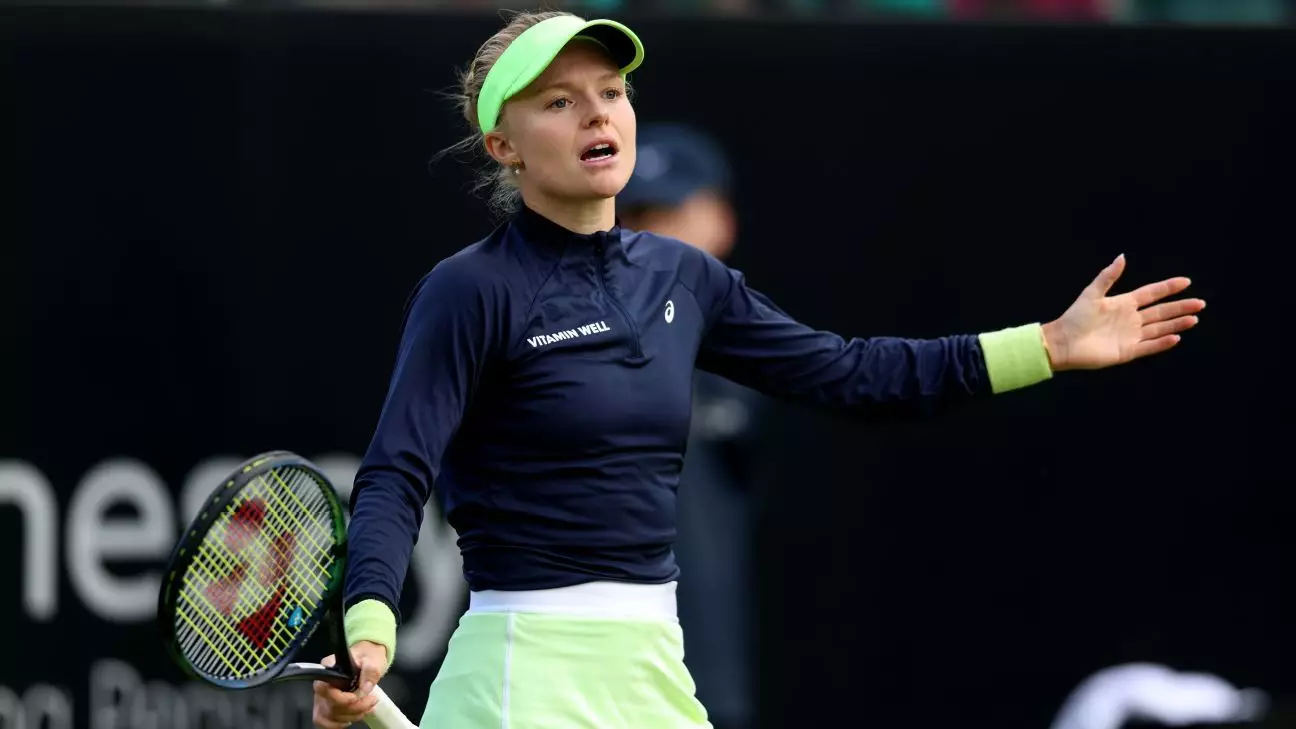In a highly publicized incident at the Rouen Open, British tennis player Harriet Dart found herself at the center of controversy following an unfortunate comment directed at her opponent, France’s Lois Boisson. After a disheartening defeat, Dart was recorded asking the umpire to tell Boisson that she “smells really bad,” which has since ignited a wave of reactions both on and off social media. This moment, which first appeared to be a fleeting lapse in judgment, has significant implications not only for Dart’s reputation but also for the values of sportsmanship that the athletic community holds dear.
The Fallout from a Heat-of-the-Moment Comment
Dart’s remarks are particularly troubling because they reflect a long-standing issue in competitive sports: the pressure to perform and the emotional strain it can impose on athletes. The overwhelming desire to win can sometimes lead competitors to lash out verbally when they are feeling vulnerable. While Dart did publicly apologize for her comments, acknowledging that they came from a “heat of the moment,” the ripple effects of such statements can linger long after the match concludes. This incident serves as a stark reminder that athletes must be vigilant about their conduct, especially when caught under the limelight.
Community Response: The Balance of Humor and Criticism
Interestingly, Boisson’s reaction to the incident showcased a refreshing blend of humor and resilience. By posting an edited photo that playfully suggested a partnership with Dove deodorant, she not only deflected the negativity but also illustrated an essential aspect of professional sports: the ability to rise above petty insults. The contrast between Dart’s serious apology and Boisson’s light-hearted retort speaks volumes about the differing approaches athletes can take when faced with criticism.
Moreover, the incident sparked a larger social conversation regarding sensitivity and respect in sports. Comments like Dart’s can perpetuate stereotypes about female athletes, a narrative that the sporting world has been striving to challenge. Athletes, particularly women, should be able to compete without fear of personal judgment related to their physical presence on the court.
The Role of Responsibility in Sports Engagement
As the sporting community continues to evolve, the onus is on athletes to behave in ways that reflect the values of respect and integrity. Dart’s situation serves as a teaching moment, urging all competitors—both aspiring and established—to own their words and actions. Training in emotional resilience and social awareness could greatly enhance athletes’ capacity to handle stress while maintaining dignified behavior in challenging situations.
Furthermore, it raises questions about the nature of competition itself. Should athletes aspire solely to win, or can they also contribute positively to the sporting culture through their interactions and reactions? As fans and participants, we must ask ourselves what we value more: victory at any cost or the integrity that comes from honoring one’s opponents on and off the court.
Dart’s experience has layered implications for how we perceive athletes and their roles as ambassadors of their sports. It is clear that the journey involves more than just honing talent; it requires fostering a sense of community bolstered by mutual respect.

